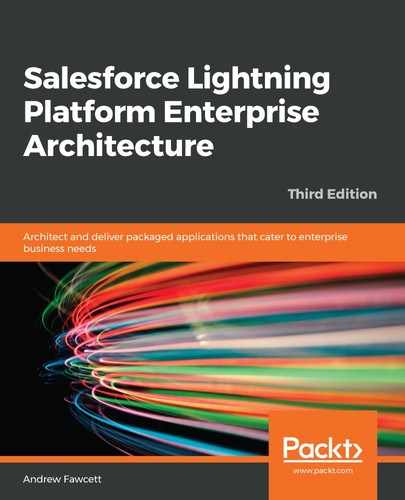The server memory storage used by the Apex variables created in an execution context can be considered the state of the execution context; in Apex, this is known as the heap. On the whole, the server memory resources used to maintain an execution context state are returned at the end; thus, in a system with short-lived execution contexts, resources can be better managed. By using the CPU and heap governors, the platform enforces the maximum duration of an execution context and Apex heap size to ensure the smooth running of the service; these are described in more detail later in this chapter.
State management is the programming practice of managing the information that the user or job needs between separate execution contexts (requests to the server) invoked as the user or job goes about performing the work, such as a wizard-based UI or a job aggregating information. Users, of course, do not really understand execution contexts and state; they see tasks via the user interface or jobs they start based on field inputs and criteria they provide. It is not always necessary to consider state management as some user tasks can be completed in one execution context; this is often preferable from an architecture perspective as there are overheads in state management. Although the platform provides some features to help with state management, using them requires careful consideration and planning, especially from a data-volume perspective.
On other programming platforms, such as Java or Microsoft .NET, static variables are used to maintain the state across execution contexts, often caching information to reduce the processing of subsequent execution contexts or to store common application configurations. The implementation of the static keyword in Apex is different; its scope applies only to the current execution context and no further. Thus, an Apex static variable value will not be retained between execution contexts, though they are preserved between multiple Apex code units (as illustrated in the previous section). Thus, in recursive Apex Trigger scenarios, allow the sharing of the static variable to control recursion.
